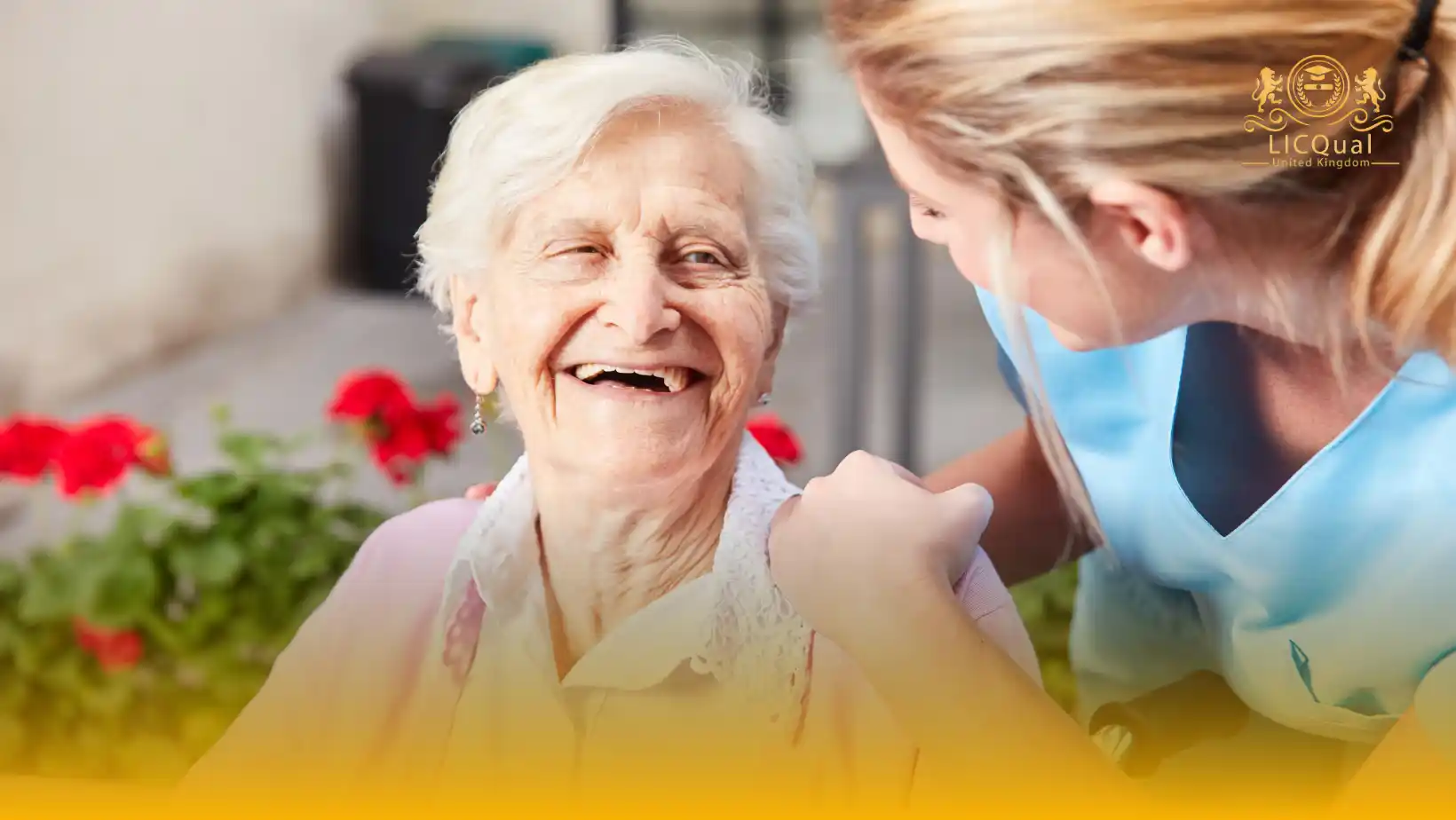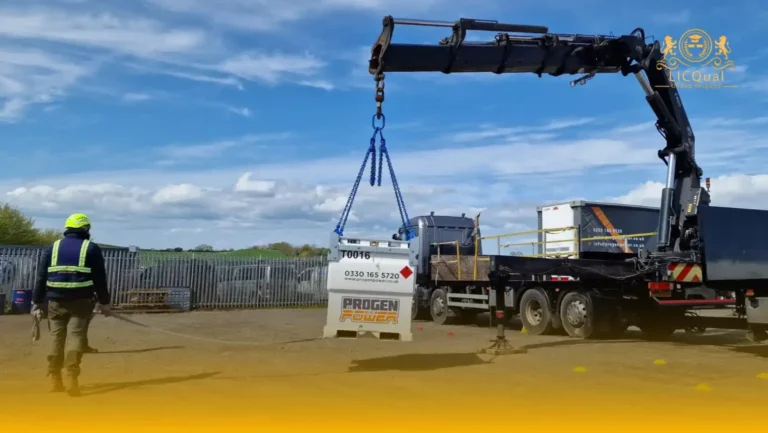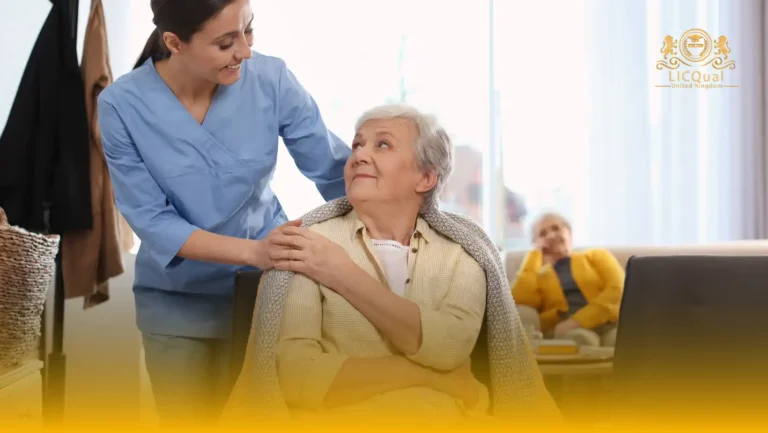The LICQual Level 3 Diploma in Gerontology and Geriatric Care Management is a specialised qualification designed for professionals working in healthcare, social care, and related fields who wish to strengthen their expertise in the management of ageing populations. This programme is not intended for fresh candidates; instead, it is tailored for individuals who already have experience in the sector and seek to enhance their career prospects, expand their knowledge, and advance their Continuing Professional Development (CPD).
As the global population continues to age, the demand for skilled professionals in gerontology and elderly care is rising rapidly. This diploma provides learners with an in-depth understanding of ageing processes, geriatric health challenges, and effective strategies for managing care services tailored to older adults. It equips learners with practical skills in care planning, ethical considerations, leadership, and resource management, ensuring they are well-prepared to take on senior roles in healthcare organisations, care facilities, or community services.
Centres delivering this qualification must ensure the availability of competent and qualified staff who possess relevant expertise in gerontology and care management. Additionally, centres are required to provide all necessary learning resources, facilities, and support to deliver high-quality training and ensure successful learner outcomes.
By completing this diploma, learners will not only broaden their professional competencies but also contribute significantly to improving the quality of life for elderly individuals, making this programme a vital step for career advancement in the healthcare and social care sectors.
Course Overview
Qualification Title
LICQual Level 3 Diploma in Gerontology and Geriatric Care Management
Total Units
6
Total Credits
60
GLH
240
Qualification #
LICQ2200753
Qualification Specification
To enroll in the LICQual Level 3 Diploma in Gerontology and Geriatric Care Management, applicants must meet the following criteria:
|
Qualification# |
Unit Title |
Credits |
GLH |
|---|---|---|---|
|
LICQ2200753-1 |
Principles of Gerontology and the Ageing Process |
10 |
40 |
|
LICQ2200753-2 |
Geriatric Health Conditions and Care Practices |
10 |
40 |
|
LICQ2200753-3 |
Ethical, Legal, and Cultural Issues in Elderly Care |
10 |
40 |
|
LICQ2200753-4 |
Care Planning and Person-Centred Approaches in Geriatric Management |
10 |
40 |
|
LICQ2200753-5 |
Leadership and Professional Practice in Geriatric Care Management |
10 |
40 |
|
LICQ2200753-6 |
Community Resources, Family Engagement, and Support Systems in Elderly Care |
10 |
40 |
By the end of this course, learners will be able to:
Unit 1: Principles of Gerontology and the Ageing Process
By the end of this unit, learners will be able to:
- Explain the biological, psychological, and social aspects of ageing.
- Analyse the impact of ageing on individuals, families, and communities.
- Evaluate theories of gerontology and their application in elderly care.
- Apply principles of healthy ageing to improve quality of life for older adults.
Unit 2: Geriatric Health Conditions and Care Practices
By the end of this unit, learners will be able to:
- Identify common health conditions affecting older adults, including chronic illnesses and cognitive impairments.
- Apply evidence-based care practices for managing geriatric health issues.
- Recognise signs and symptoms of age-related conditions for early intervention.
- Integrate physical, mental, and social well-being approaches into elderly care.
Unit 3: Ethical, Legal, and Cultural Issues in Elderly Care
By the end of this unit, learners will be able to:
- Interpret key legal and ethical frameworks governing geriatric care.
- Demonstrate respect for cultural diversity in elderly care practices.
- Apply safeguarding principles to protect vulnerable older adults.
- Evaluate ethical dilemmas and make informed care management decisions.
Unit 4: Care Planning and Person-Centred Approaches in Geriatric Management
By the end of this unit, learners will be able to:
- Develop personalised care plans based on individual needs and preferences.
- Apply person-centred care principles in geriatric management.
- Assess risks and implement strategies to maintain safety and well-being.
- Monitor, evaluate, and adapt care plans to ensure continuous improvement.
Unit 5: Leadership and Professional Practice in Geriatric Care Management
By the end of this unit, learners will be able to:
- Demonstrate leadership skills in managing elderly care teams and services.
- Apply professional standards and codes of conduct in geriatric care.
- Manage resources effectively to enhance service delivery.
- Promote reflective practice and continuous improvement in professional roles.
Unit 6: Community Resources, Family Engagement, and Support Systems in Elderly Care
By the end of this unit, learners will be able to:
- Identify community-based resources available for elderly care and support.
- Promote collaboration with families and caregivers to improve care outcomes.
- Design strategies for enhancing social inclusion and reducing isolation among older adults.
- Evaluate the effectiveness of community partnerships in supporting geriatric care.
This qualification is designed for professionals who want to enhance their expertise in elderly care and gerontology. It is ideal for:
- Healthcare Professionals such as nurses, caregivers, and support workers seeking to strengthen their knowledge in geriatric care management.
- Social Care Practitioners working with ageing populations who wish to expand their skills in person-centred elderly care.
- Care Home Supervisors and Managers aiming to improve leadership, management, and service delivery in elderly care settings.
- Community Health Workers and Social Service Providers supporting older adults within local communities.
- Rehabilitation and Therapy Assistants involved in providing specialised care and support for elderly individuals.
- Professionals in Healthcare Administration seeking to develop expertise in managing gerontology and geriatric care services.
- CPD-focused Practitioners who want to advance their Continuing Professional Development (CPD) and progress into senior roles.
Centres wishing to deliver this qualification must meet the following requirements to ensure high-quality teaching, learning, and assessment:
- Qualified and Competent Staff: Centres must employ trainers, tutors, and assessors with appropriate qualifications, experience, and expertise in gerontology, geriatric care management, or related healthcare and social care fields.
- Access to Suitable Learning Resources: Centres must provide learners with up-to-date study materials, case studies, research resources, and access to relevant legislation and professional practice guidelines.
- Facilities and Equipment: Adequate facilities should be available, including classrooms, ICT support, and where applicable, access to practical environments or simulated care settings for skill development.
- Assessment and Quality Assurance: Centres must have robust systems for fair assessment, internal verification, and quality assurance to maintain the integrity and consistency of the qualification.
- Learner Support Services: Appropriate academic guidance, career advice, and learning support must be available to assist learners throughout their studies.
- Commitment to Professional Standards: Centres must align delivery with recognised professional and ethical standards within healthcare and social care, ensuring learners are well-prepared for practical application in the workplace.
- CPD Opportunities for Staff: Teaching and assessing staff should engage in ongoing Continuing Professional Development (CPD) to maintain subject knowledge and uphold best practices in training delivery.
These requirements ensure that centres provide a structured, professional, and supportive learning environment, allowing learners to achieve success and progress confidently in the field of gerontology and geriatric care management.
Assessment and Verification
All units within this qualification are subject to internal assessment by the approved centre and external verification by LICQual. The qualification follows a criterion-referenced assessment approach, ensuring that learners meet all specified learning outcomes.
To achieve a ‘Pass’ in any unit, learners must provide valid, sufficient, and authentic evidence demonstrating their attainment of all learning outcomes and compliance with the prescribed assessment criteria. The Assessor is responsible for evaluating the evidence and determining whether the learner has successfully met the required standards.
Assessors must maintain a clear and comprehensive audit trail, documenting the basis for their assessment decisions to ensure transparency, consistency, and compliance with quality assurance requirements.







